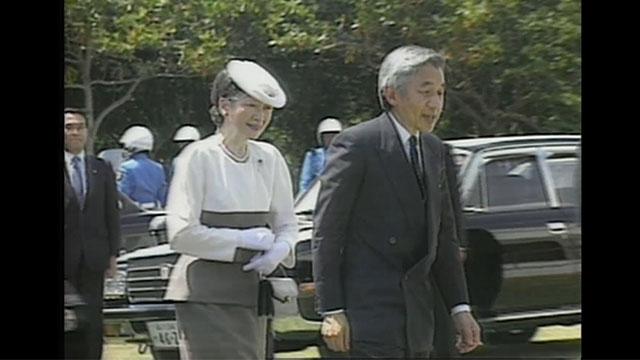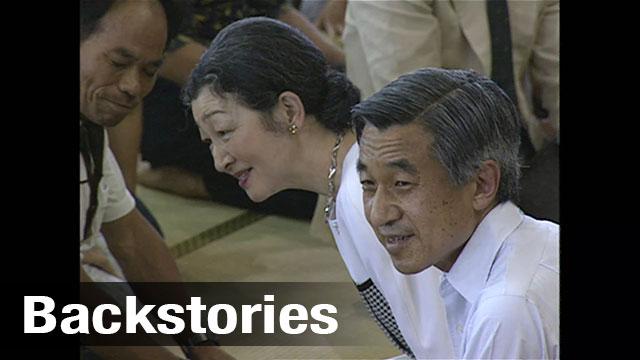Part of Emperor Akihito's legacy will be how he defined the position as a "symbol of the state" under the post-war Constitution.
Professor Kenneth Ruoff of Portland State University says the Emperor's down-to-earth demeanor was crucial to doing so. Ruoff has been studying the Japanese Imperial system for decades.
"It's very important for people around the world, who might have memories of Japan's wartime Emperor who's above the clouds and thousands of Japanese bowing in unison to him, that the present Emperor has been among people."

The country got its first taste of the new Emperor's style in 1991 when he and the Empress visited people who had evacuated areas of southwest Japan after a volcanic eruption.
"This is when we saw some of the most spectacular images early in the reign, showing us that the distance between the people and the imperial couple was going to be very much narrowed."
Consoling and encouraging disaster victims was a duty the couple seized on, says Ruoff.

The couple has also taken eleven trips to Okinawa, the site of a fierce ground battle that killed more than 200,000 people in the closing days of World War Two. The island was devastated by the fighting and the people there were left with complex feelings toward the Imperial family.
"Before his first trip to Okinawa, when he was still Crown Prince, Emperor Akihito made an unbelievable effort into understanding the history and culture of Okinawa," says Ruoff. "And then repeatedly during his reign, he traveled there to try to bring Okinawa fully back into the national community because he knew the historical reasons why the people of Okinawa might have very mixed feelings toward the national community."

The Emperor and Empress have also visited battlefields overseas to pay tribute to both sides of the War.
"The Emperor spent an enormous amount of time trying to bring closure to the post-war era, closure to the lingering wounds of the War and the imperial era."

Ruoff says Crown Prince Naruhito will follow in his father's footsteps but also promote causes he's been working on, like access to clean water.
"Everybody in Japan has access to clean water. But Crown Prince Naruhito's focus is on the people around the world who don't. This is a departure and maybe he wants the Japanese to follow his lead to think not only about themselves but what can they do to help improve lives around the world."

Ruoff also points out the new Emperor's style will take into account changes in Japan.
"I think he understands that Japan is almost surely going to evolve into a more diverse place. It is probably going to have to take more immigrants or otherwise it's going to see its population plummet. Moving forward, the role of the Emperor is going to be to try to create a sense of loyalty towards the national community among an ever diversifying society."

